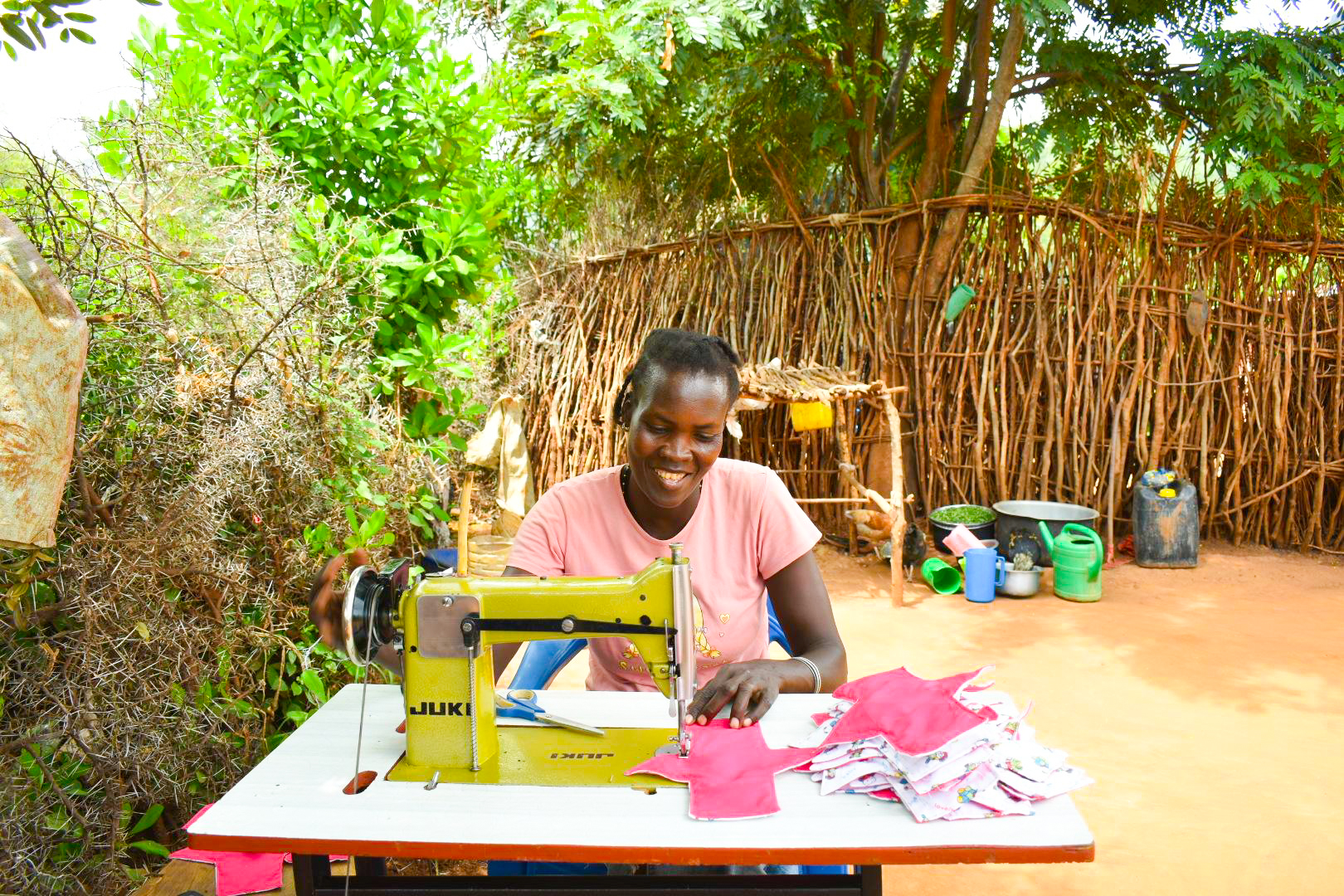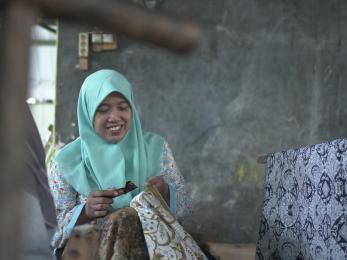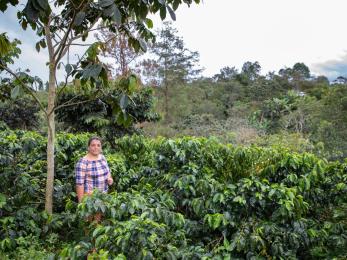How we're helping families in Haiti's rural villages
November 05, 2010 • UPDATED April 27, 2025
I arrived in Port-au-Prince on Wednesday of this week, just ahead of Tomas, the tropical storm that just passed through Haiti today.
Yesterday, we headed up to the rural Central Plateau — about 25 miles outside of the capital city — where Mercy Corps is focusing its longer-term recovery efforts. Mercy Corps decided within weeks after the earthquake to focus its efforts in these rural provinces. Port-au-Prince simply cannot support its population of three million. Some one million people are still living in tents after the earthquake. There are insufficient schools and jobs.
In the provinces, Mercy Corps is mounting programs that support people who have decided to leave Port-au-Prince and returned to their native villages. Mercy Corps' programs provide temporary jobs through cash-for-work building roads, digging sanitation trenches and rehabilitating agricultural land. They also offer support to host families that have taken in returning relatives from Port-au-Prince. In months to come, Mercy Corps will begin a significant agricultural development program, helping to develop and support small agri-businesses.
Outside of the provincial town of Mirebalais, I spent time in the home of Rosanne Marcellin. She and her husband, Renal Josef, have six children who range from ages 6 to 18. They are barely subsistence farmers and are part of the 80 percent of the population who live on less than $2 a day.
They all live together in a small one-room hut about 8 feet by 12 feet. It is a traditional hut made of sticks and mud. In the hut, they have one bed, a washing basin, a few pots and pans and implements. They hang their clothes on the rafters and I saw a couple of toothbrushes stuck in between the slats of the walls. The eight family members sleep either on the one bed or on mats on the dirt floor.
Rosanne has lived her whole life in this spot. She showed me the hut next door where her parents live. Her sister lives in a hut on the other side of her own. They get by on the little food they produce in their garden: beans, peanuts, corn, squash, okra, mushrooms. They have a few chickens. Fruit is plentiful on the trees around them.
When she can, Rosanna will trade in “small commerce” in nearby marketplaces, selling soap, shampoo, toothpaste and other toiletries. She uses money she earns from that to buy rice and other small commodities. I asked her what the family had eaten that day. For breakfast they had rice and herbal tea. For their second meal in the afternoon she made mais mollu kole ad pois, a traditional dish of cornmeal, beans and okra sauce.
Seven family members from Port-au-Prince had returned to the family compound after the earthquake. Approximately 90,000 earthquake survivors fled to this region and are living with extended family. This represents a significant hardship for the host families, who already live on very little. Haiti is deeply family-oriented and compassionate culture. No one would consider anything but welcoming family and sharing what little they had.
Mercy Corps' host family program also gives a cash grant of US$128 to host families to use in whatever way they feel is most helpful. Traditional aid programs would decide what was needed and give out extra food or building supplies to expand their home. Mercy Corps feels that a more respectful and effective method is to give them funds (in the form of vouchers they can redeem). Families can then decide for themselves how they can best use those funds, and their purchases then also support local markets.
Rosanne and her husband felt they had enough food from their garden to support the additional family members. They used their cash grant to replace the roof of their hut, and most importantly, they have used the funds to pay school fees to send all of their children to school. The children have only sporadically attended school in the past. Rosanne and her husband, Renal, never were able to attend school.
When I asked Rosanne if her children could read, she answered, “I don’t know. I don’t know how to read so I don’t know if they can either.” Yvonia, her 18-year old daughter, came into the hut. I asked her what grade she was in, she told me she was in the 5th grade. She wanted to read to us and she proudly read part of her social studies book. Her mother beamed as she heard her daughter read for the first time.
Over the next several months, Rosanne and Renal will be able to participate in a Mercy Corps program that works with small subsistence farmers to help them evolve into small agribusiness entrepreneurs. We will strengthen the capacity of farmers and agricultural extension workers on improved agricultural techniques, natural resource management and agribusiness skills such as production planning, using credit, negotiation skills and market analysis. As 85 percent of Haitians have access to a cell phone, we are working with the agricultural extension services and mobile service providers to develop an SMS service so rural farmers can access product price information in various local and regional markets and make better business decisions.
Rosanne and Renal are warm, engaging people who embody the enterprising spirit of the Haitian people. They are eager to tap into the innovative support that Mercy Corps is bringing to the Haitian provinces.


